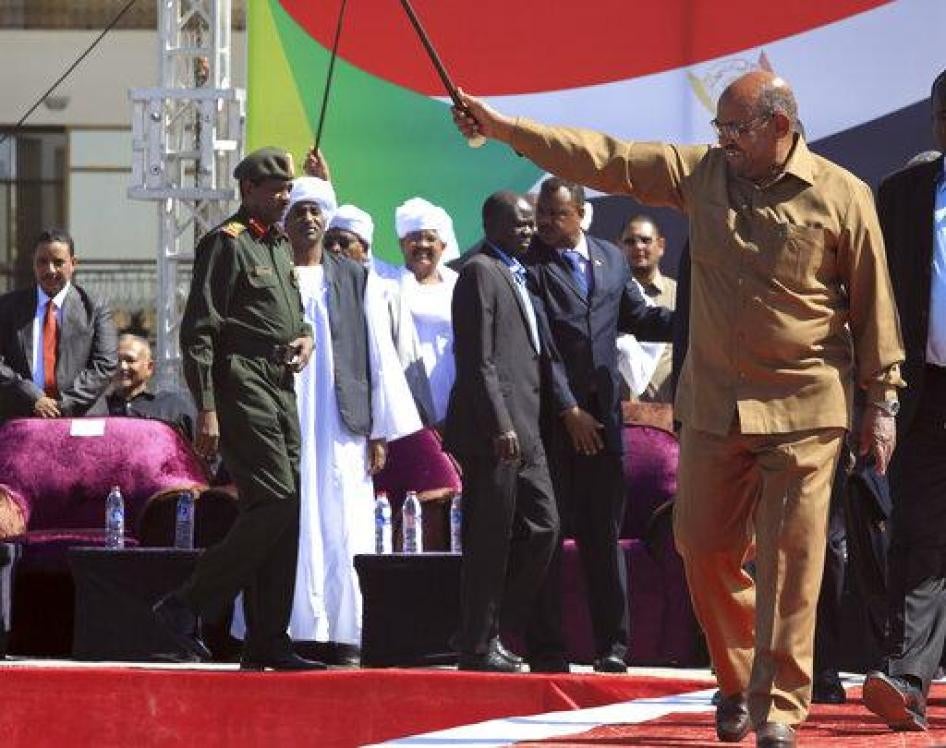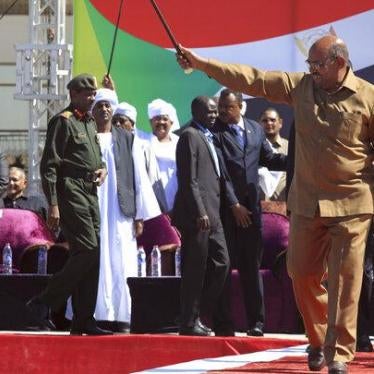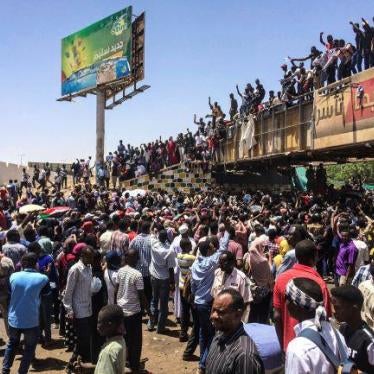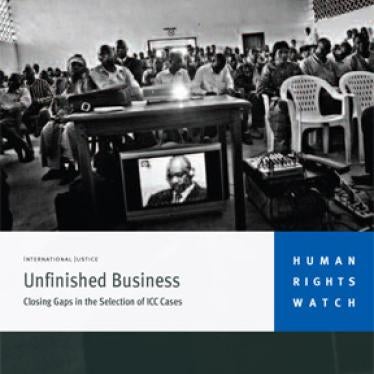(Geneva) – The International Criminal Court (ICC) ruled on May 6, 2019 that Jordan failed to meet its international legal obligations to arrest then-President Omar al-Bashir of Sudan during a 2017 visit, Human Rights Watch said today. The ICC appeals chamber said that a sitting head of state does not have immunity from arrest for alleged grave crimes even when the leader is from a country that has not joined the ICC.
Al-Bashir, who was ousted as president on April 11, 2019, after four months of mass protests across Sudan, is wanted by the ICC on charges of genocide, crimes against humanity, and war crimes for his alleged role in Sudan’s abusive counterinsurgency campaign in Darfur. The conflict in Darfur has resulted in the deaths of over 300,000 people and the displacement of several million others. The ruling involved his visit to Jordan, an ICC member, in March 2017 during an Arab League summit.
“In a major ruling, the ICC found that heads of state properly sought on charges by the court are not immune from arrest,” said Elise Keppler, associate international justice director at Human Rights Watch. “The decision helps to assure that victims of mass atrocities have access to justice even when the highest-level officials are implicated in the crimes.”
Sudan is not a member of the ICC, but in 2005 the United Nations Security Council referred the Darfur situation to the ICC. The ICC prosecutor opened an investigation, and arrest warrants were issued in 2009 and 2010 against al-Bashir. At the time of the visit to Jordan, Jordan claimed it was not obligated to arrest al-Bashir given his status as a head of state of a non-ICC member.
The five-judge appeals chamber unanimously upheld the pre-trial chamber’s ruling that Jordan was required to arrest al-Bashir when he was on Jordanian territory. The judges found that there is no immunity for heads of state before an international criminal court with authority. As a result, the judges concluded that no traditional principle of head-of-state immunity – which protects leaders on foreign soil from arrest – existed that was necessary to be waived.
The chamber found that the Security Council resolution that referred Darfur to the ICC also required Sudan to cooperate fully with the court. The judges determined that this requirement meant that Sudan had to ensure that any immunities could not be a bar to the court’s functioning.
The chamber found that Jordan was also obligated to arrest al-Bashir as both Jordan and Sudan are parties to the Convention on the Prevention and Punishment of the Crime of Genocide, and that members of the convention commit to prevent and punish genocide, one of the crimes with which al-Bashir is charged.
The chamber also ruled by a majority that the pre-trial chamber erred by sending Jordan’s failure to cooperate to the Security Council and the court’s assembly of members. The chamber found that this action was based on an incorrect conclusion that Jordan did not try to consult the court ahead of the visit.
Sudan has repeatedly obstructed the ICC’s investigation in Darfur, and there are four other individuals subject to outstanding ICC arrest warrants for alleged crimes in Darfur.
During his presidency, al-Bashir sought to maintain legitimacy – and flout the ICC – by traveling abroad while subject to arrest warrants. Some countries, both members and non-members of the ICC, hosted him, while others made clear he was not welcome on their territories or rescheduled meetings to avoid his presence. Nongovernmental groups across Africa and globally have campaigned for his surrender.
On April 17, media reported that al-Bashir was being held in Kober prison in Khartoum, Sudan’s capital. The transitional military council that assumed control in the country has said they would not hand al-Bashir over to face justice at the ICC, but could try him in Sudan or a forthcoming civilian government could do so. Human Rights Watch urged Sudan’s council to promptly turn al-Bashir over to the ICC.
The ICC appeals chamber heard oral arguments from September 10-14, 2018. ICC prosecutors have been investigating al-Bashir since 2005, when the Security Council referred the situation in Darfur to the ICC. There are two outstanding arrest warrants against al-Bashir stemming from the investigation for five counts of crimes against humanity, two counts of war crimes, and three counts of genocide. The ICC had previously found that ICC members, including South Africa, Chad, Uganda, Malawi, and Djibouti, breached their obligations as ICC members by failing to arrest al-Bashir when he visited their countries.
“Whether president or prisoner in Sudan, al-Bashir remains a fugitive from the ICC on charges of the gravest crimes committed in Darfur,” Keppler said. “Al-Bashir should be surrendered to the ICC to face the charges against him.”








